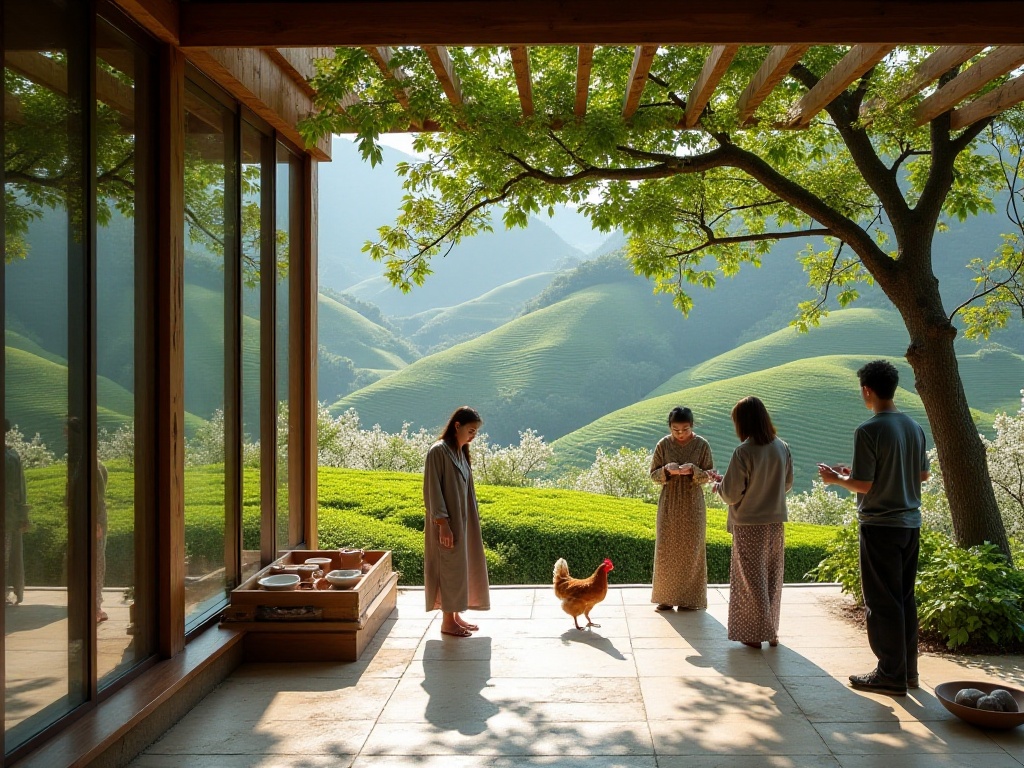
Opening Thoughts
Recently, my social media has been flooded with rural vacation photos, making me incredibly envious! A few days ago, I made a special trip to Chongming Island for a vacation, where I met a particularly interesting elderly gentleman. During our casual chat, he remarked, "Rural tourism today is very different from before. It's no longer just about eating farm meals and staying in farmhouses; it's becoming increasingly sophisticated." The elderly man's words really resonated with me, making me wonder: what changes have actually occurred in rural tourism?
Understanding Misconceptions
To be honest, before experiencing it firsthand, whenever rural tourism was mentioned, various "outdated" images would pop into my mind: greasy large iron woks, cluttered farmhouse courtyards, basic bathrooms, fields swarming with insects... However, this trip to Chongming Island completely overturned my perceptions! Modern rural tourism is nothing like the rough "farmhouse entertainment" we used to imagine.
Those old, simple farmhouses have undergone a magnificent transformation, becoming boutique guesthouses full of design elements; greasy farm dishes have evolved into creative specialty cuisine; even ordinary farming activities have been repackaged into engaging experiential programs. It's fair to say that if you're still stuck with old impressions of rural tourism, you really need to update your understanding.
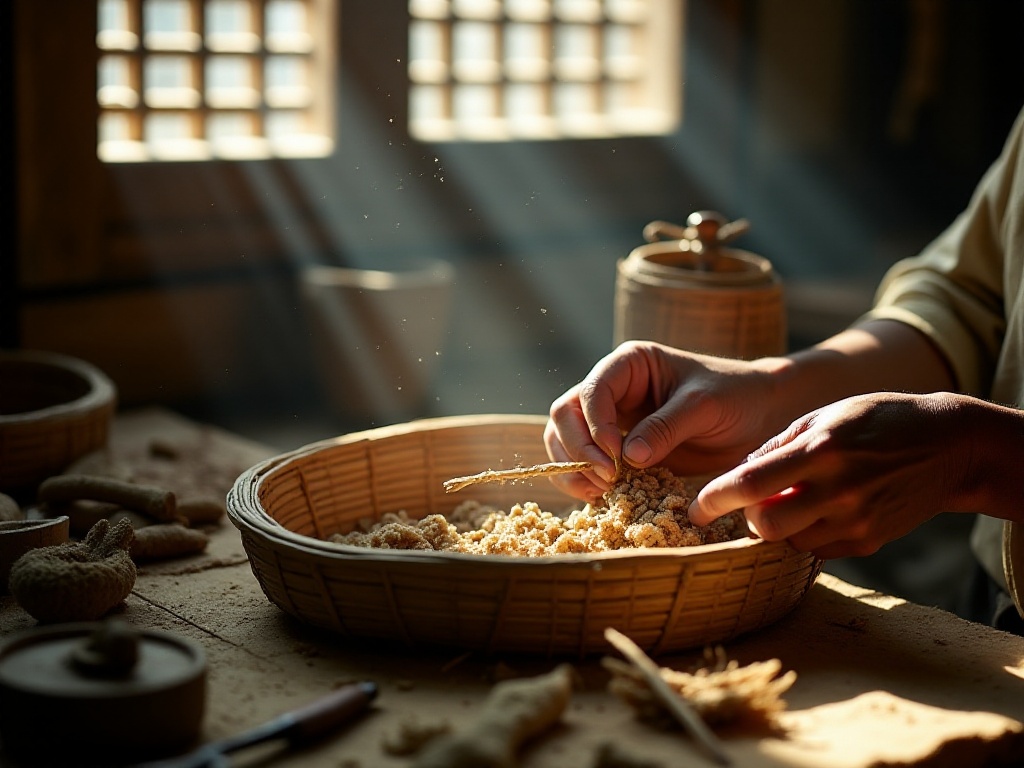
Essential Understanding
So, what is true rural tourism today? As someone who has just experienced it firsthand, I believe modern rural tourism is a lifestyle that returns to nature and relaxes both body and mind. It's not just about food and lodging, but about letting visitors deeply experience all aspects of rural life.
In the countryside, you can appreciate natural scenery that's impossible to see in the city and experience the different landscapes brought by changing seasons. In spring, you can see fields of golden rapeseed flowers; in summer, you can wander through lush rice paddies; in autumn, you'll be amazed by various harvest scenes; in winter, you can admire the snow-covered rural landscape.
Beyond natural scenery, rural folk culture is another highlight. Each place has its unique folk arts, handicrafts, festivals, and other cultural heritage. For instance, I saw the local unique bamboo weaving craftsmanship on Chongming Island, which was truly eye-opening.
Most importantly, modern rural tourism emphasizes interaction and experience. You can personally participate in farming activities and experience farmers' daily lives. This process of personal involvement not only helps you understand rural culture more deeply but also provides a unique sense of achievement.
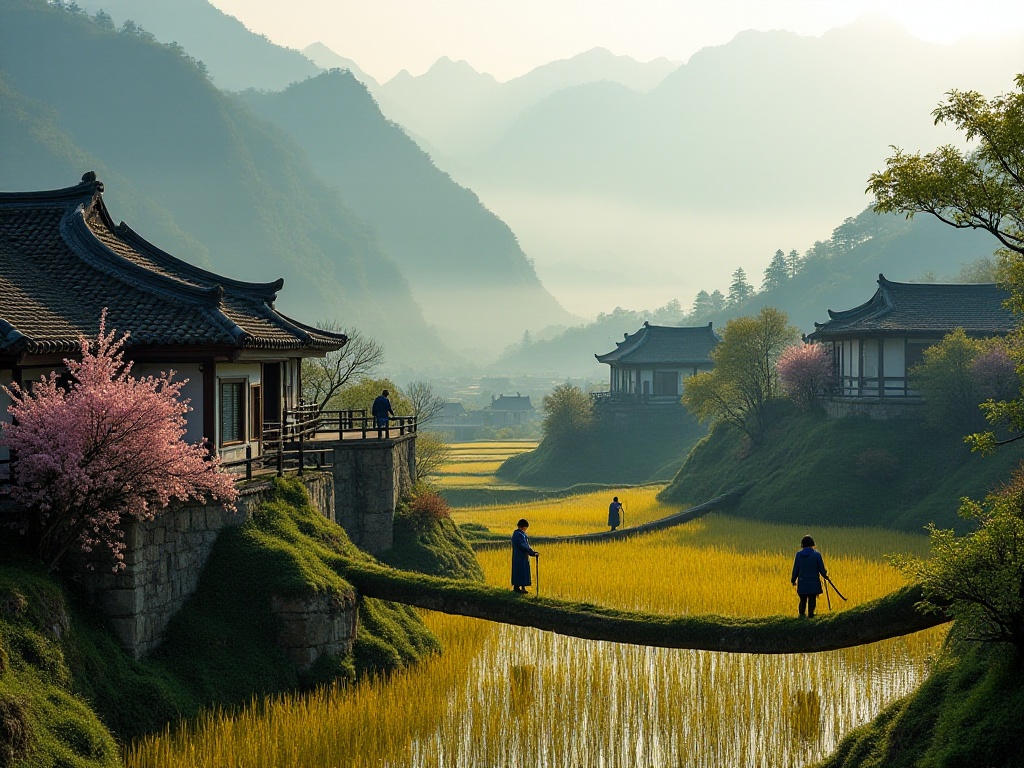
Special Features
Speaking of rural tourism's characteristics, what attracts me most are its "rural nature" and "participatory" aspects.
Let's talk about the "rural nature" first. I remember my first morning on Chongming Island, waking up naturally to birdsong, opening the window to see misty fields, and farmers working in the distance. At that moment, all urban worries seemed to vanish. This feeling is something you can't experience in any five-star hotel.
The evenings were even more delightful, lying in a rocking chair in the courtyard, looking up to see a sky full of stars. This is a rare sight in cities with severe light pollution. You feel as if you're in a world of poetry and distance, making it especially easy to enter a state of mindfulness.
As for "participation," that really got me excited! During these days on Chongming Island, I participated in many interesting farming activities. The most memorable was planting rice seedlings. Although I kept planting them crooked at first and got my pants all muddy, after gradually mastering the technique and seeing the seedlings I planted neatly arranged in the field, that sense of achievement was truly indescribable.
I also learned vegetable growing techniques from local farmers. I never realized how many steps it takes for the vegetables we eat to go from seed to table! This gave me more respect for food and a better understanding of farmers' hard work.
The most interesting was participating in agricultural product harvesting. We went to the orchard early in the morning, learning how to judge fruit ripeness and how to harvest correctly under farmers' guidance. The fruit picked with your own hands tastes especially sweet!
These participatory activities not only taught me a lot about agricultural knowledge but more importantly gave me a deeper understanding and experience of rural life. This immersive experience is far more meaningful than superficial sightseeing.
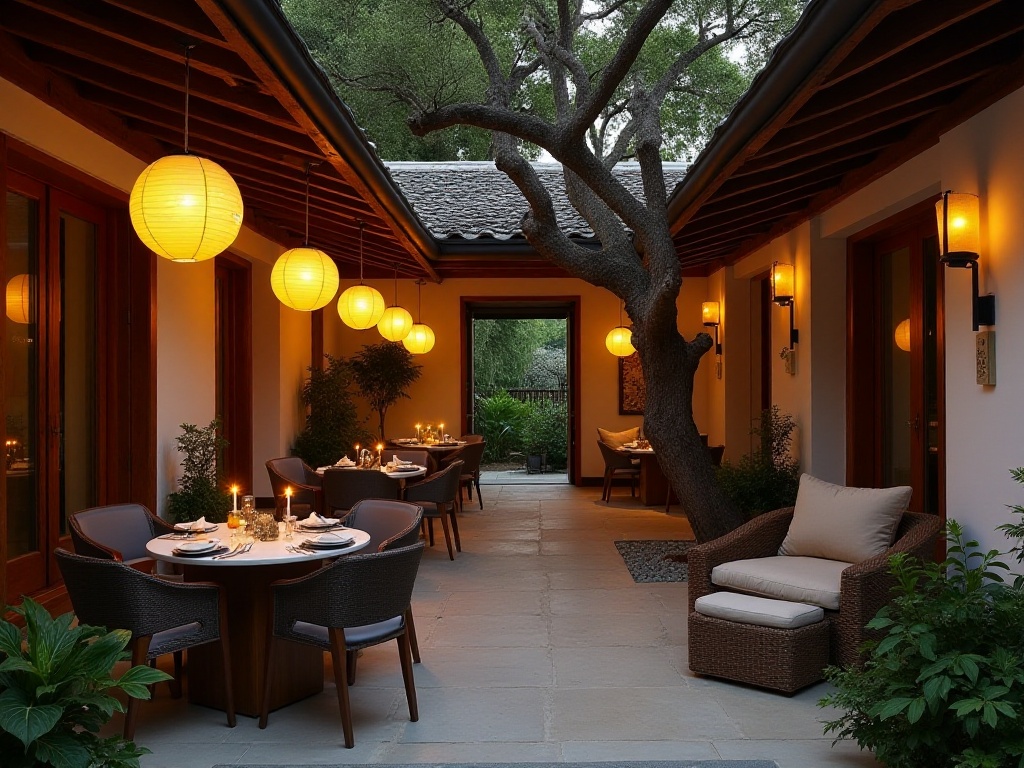
Transformation and Upgrade
Rural tourism today has undergone a qualitative leap, shifting from initial extensive development to refined operations. Many places have begun to focus on tourism product design and service quality improvement, creating many eye-catching new projects.
For example, in terms of accommodation, rural guesthouses are no longer simple farmhouses. Many places have started building new Chinese-style resorts that retain traditional architectural features while being equipped with modern facilities. One guesthouse I stayed in looked like an ordinary farmhouse from the outside, but stepping into the room was amazing: huge floor-to-ceiling windows, private viewing balconies, smart room control systems - the facilities were no less impressive than city hotels.
The upgrade in dining is also obvious. Today's rural restaurants not only emphasize ingredient freshness but also focus on dish innovation. For instance, I tried a "garden seven-color salad" made entirely with local seasonal vegetables, arranged very elegantly, completely overturning my impression of farm cuisine.
Activities have also become increasingly diverse. Besides traditional farming experiences, many places have developed special projects. Places like farming culture experience halls, intangible cultural heritage workshops, and outdoor sports bases have all added new highlights to rural tourism.
The improvement in service levels is particularly impressive. Rural tourism practitioners now undergo professional training, providing professional reception and interpretation services. Some places have even developed smart guide systems, allowing tourists to learn about attractions through their phones, which is especially convenient.
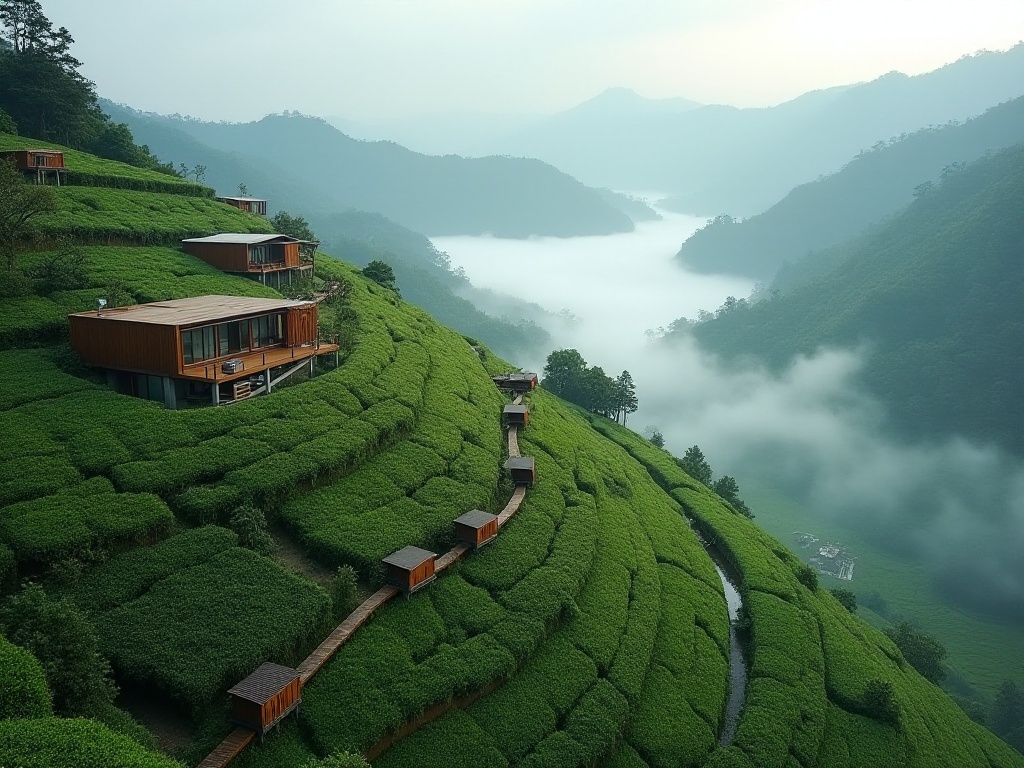
Recommended Ways to Play
After this firsthand experience, I've summarized several super interesting rural tourism approaches to share with everyone:
First is farming experience. This is highly recommended because each season has different farming activities to choose from. In spring, you can experience rice planting and tea picking; in summer, you can pick fruits and catch crayfish; in autumn, you can participate in rice harvesting and sweet potato picking; in winter, you can experience pickling vegetables and making New Year goods. These activities not only let you get close to nature but also teach you a lot about agriculture.
I especially recommend trying tea picking. Though it seems simple, tea picking actually requires skill - you need to select tender buds and pay attention to picking techniques. Although you might feel sore at first, when you see your freshly picked tea made into fragrant finished products, that sense of achievement is really great.
Second is cultural experience. Many rural areas now preserve unique folk cultures, such as intangible cultural heritage displays and folk art performances. I visited a straw weaving craft exhibition and was amazed watching artisans create beautiful artworks from ordinary straw.
Some places regularly hold folk festival activities like dragon boat racing, river lantern releasing, and dragon lantern making. Participating in these activities helps you understand local culture more deeply. Some villages also organize evening activities like bonfire parties and outdoor movies, which are especially suitable for young people.
Food experience is another highlight. Rural dining is no longer just simple farm cooking; many places have started creating innovative cuisine with local characteristics. For example, some places transform traditional farm dishes into refined creative cuisine, retaining original flavors while adding new highlights.
I especially recommend trying farmhouse private dishes. These dishes often use family-inherited recipes and homegrown ingredients, making them especially fresh. Many farmhouses now modify their cooking to suit urban tastes, maintaining authentic farm flavors while accommodating modern dietary habits.
Then there's outdoor sports. Many rural areas have developed hiking trails, cycling routes, and other outdoor sports activities. Cycling on country roads, experiencing fresh air and natural scenery - it's really great. Some places even organize nighttime stargazing activities; away from urban light pollution, you can see a sky full of stars, which is particularly romantic.
Finally, there's photography. Rural natural scenery and cultural landscapes make great photography subjects. Whether it's misty morning fields or golden rice paddies, you can capture very atmospheric photos. I suggest going early for shooting; rural areas are especially beautiful in morning light.
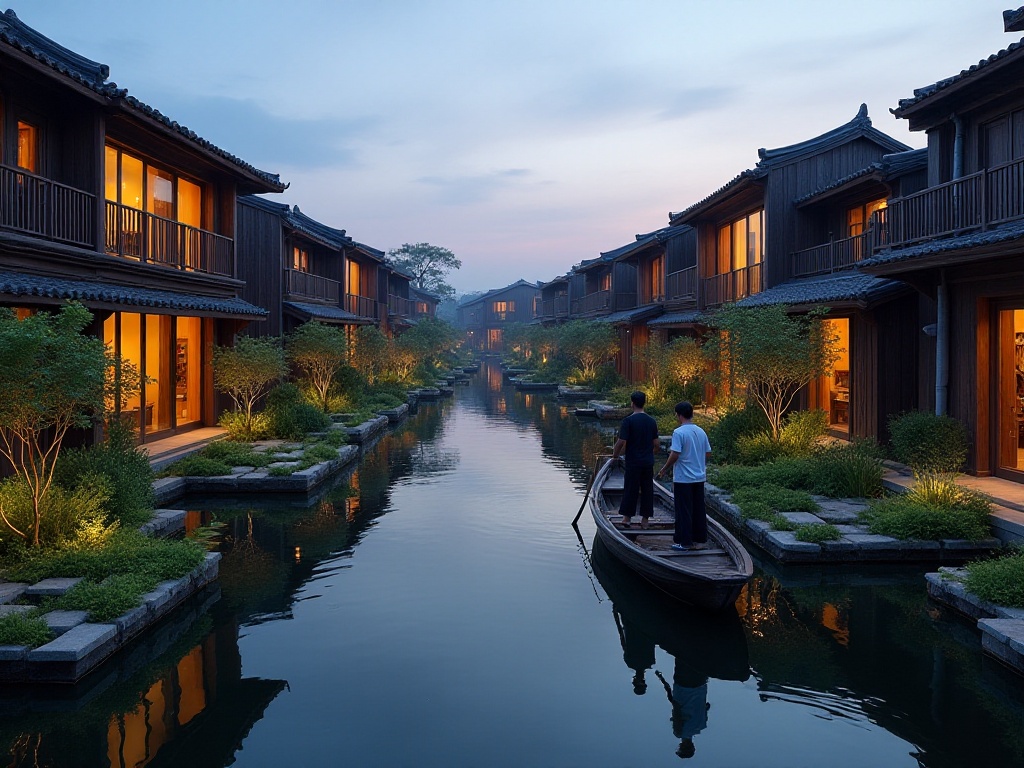
Future Outlook
With improving living standards and aesthetic appreciation, rural tourism will surely welcome greater development opportunities. I think future rural tourism will show these characteristics:
First is greater emphasis on personalized experiences. Everyone has different interests, and future rural tourism will provide more customized services, letting tourists choose different experience projects according to their preferences.
Second is the integration of technological elements. For example, using VR technology to recreate traditional farming scenes, or using smart devices to provide more convenient guide services. These technological means can make rural tourism more interesting.
Third is strengthened ecological protection awareness. Future rural tourism will pay more attention to environmental protection, possibly developing more eco-themed tourism projects that let tourists learn about environmental protection while playing.
Finally, there's deep integration with other industries. Rural tourism may combine with creative cultural industries, health industries, and more fields to develop more innovative products and services.
I believe that with these changes, future rural tourism will surely bring us more surprises. As someone who has experienced it firsthand, I really recommend everyone take the opportunity to experience modern rural tourism - you'll surely gain something different.
So, share your thoughts - what's your ideal rural tourism like? Feel free to share your views and experiences with me.
Next
Hidden Gems in Rural Vietnam: Rediscovering Serenity Post-Pandemic
As the world emerges from the cocoon of lockdowns, Vietnam's countryside unfurls its wings, revealing a kaleidoscope of hidden treasures. The pandemic's pause has birthed a new era of travel, one that whispers of untrodden paths and authentic encounters. Rural Vietnam, once the backdrop to frenetic city escapes, now takes center stage in a renaissance of rustic allure.
In-Depth Exploration: 10 Hidden Rural Tourism Destinations in Europe Worth Experiencing in 2024, Making Your Travel Unique
A comprehensive overview of global rural tourism destinations, featuring distinctive villages and countryside locations across Europe, North America, and Asia. Explores diverse accommodation options and outdoor activities from Serbia's Zlatibor to Hokkaido, Japan
The Ozark Mountains: A Forgotten Outdoor Paradise in South-Central USA, A Sanctuary Where City Dwellers Can Find Inner Peace
Explore diverse rural tourism destinations worldwide, featuring unique experiences from Native American culture in the US South to traditional villages in Eastern Europe and natural landscapes in Asia-Pacific, highlighting authentic cultural encounters and sustainable travel
Next
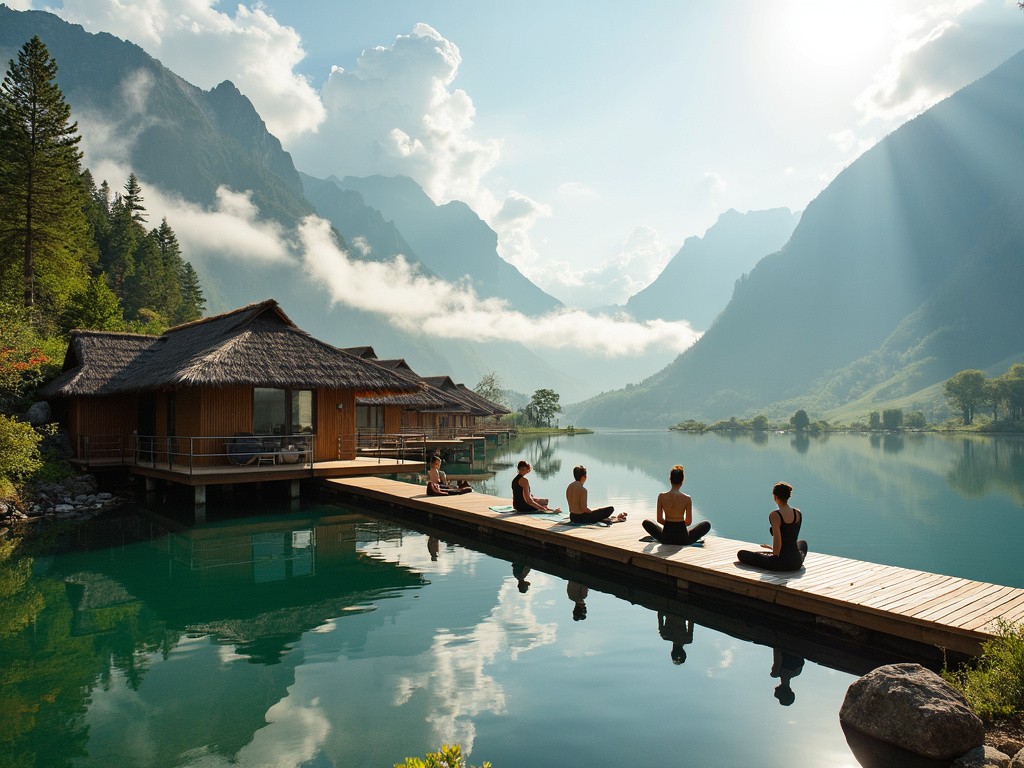
Hidden Gems in Rural Vietnam: Rediscovering Serenity Post-Pandemic
As the world emerges from the cocoon of lockdowns, Vietnam's countryside unfurls its wings, revealing a kaleidoscope of hidden treasures. The pandemic's pause has birthed a new era of travel, one that whispers of untrodden paths and authentic encounters. Rural Vietnam, once the backdrop to frenetic city escapes, now takes center stage in a renaissance of rustic allure.
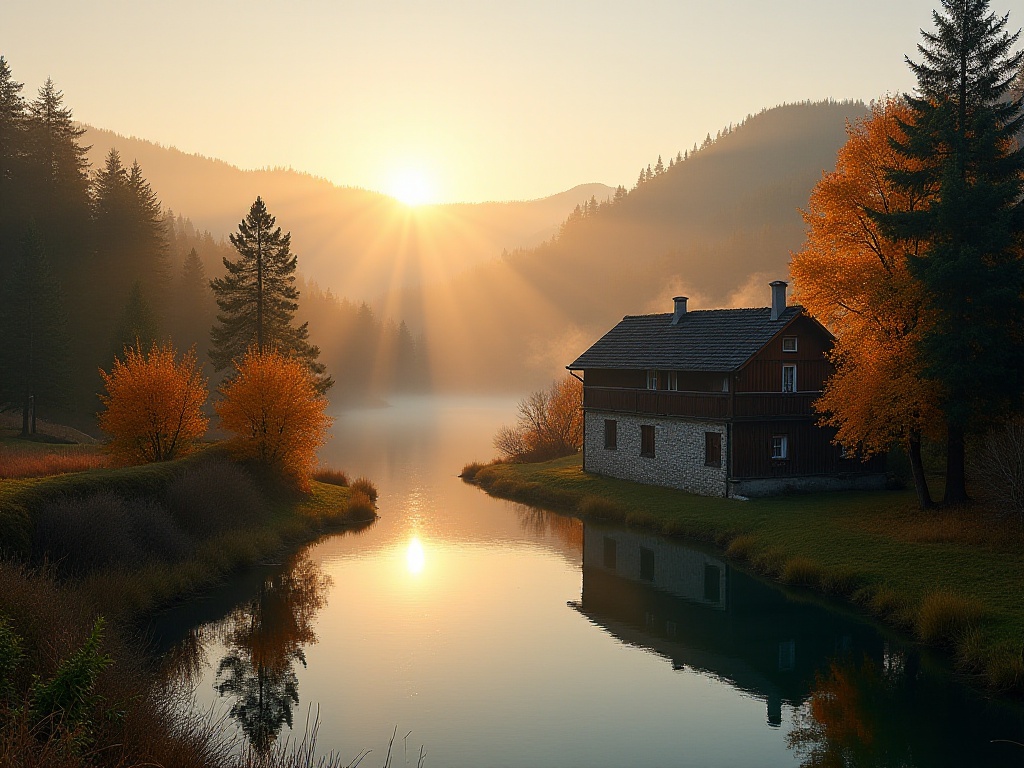
In-Depth Exploration: 10 Hidden Rural Tourism Destinations in Europe Worth Experiencing in 2024, Making Your Travel Unique
A comprehensive overview of global rural tourism destinations, featuring distinctive villages and countryside locations across Europe, North America, and Asia. Explores diverse accommodation options and outdoor activities from Serbia's Zlatibor to Hokkaido, Japan
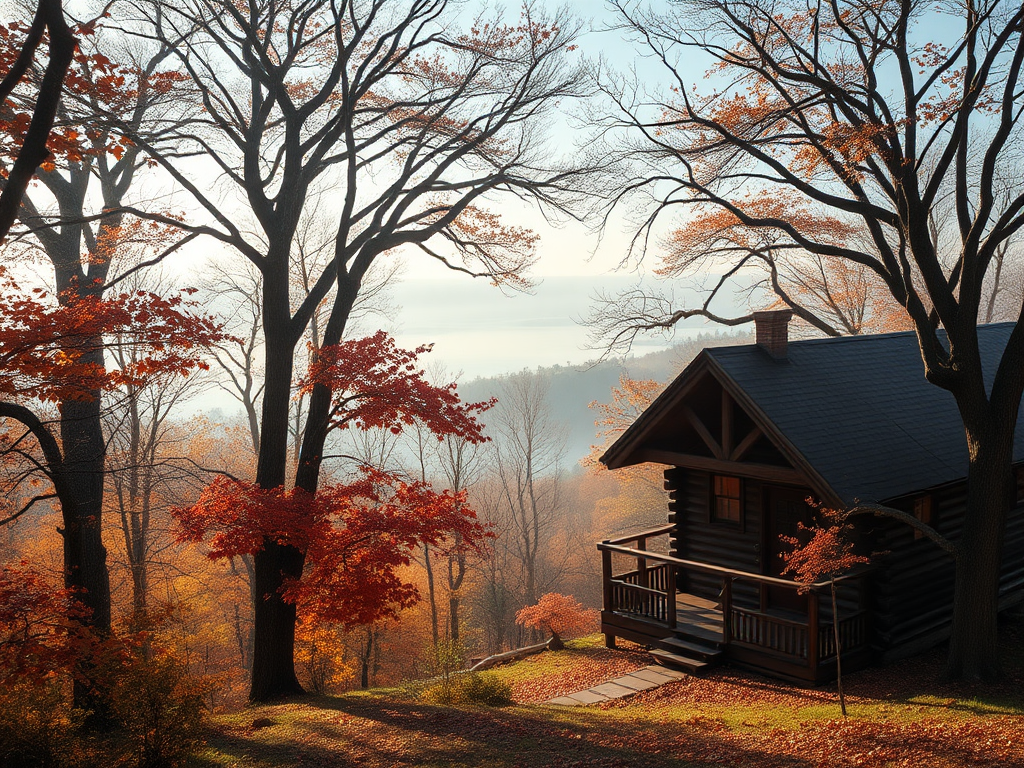
The Ozark Mountains: A Forgotten Outdoor Paradise in South-Central USA, A Sanctuary Where City Dwellers Can Find Inner Peace
Explore diverse rural tourism destinations worldwide, featuring unique experiences from Native American culture in the US South to traditional villages in Eastern Europe and natural landscapes in Asia-Pacific, highlighting authentic cultural encounters and sustainable travel

